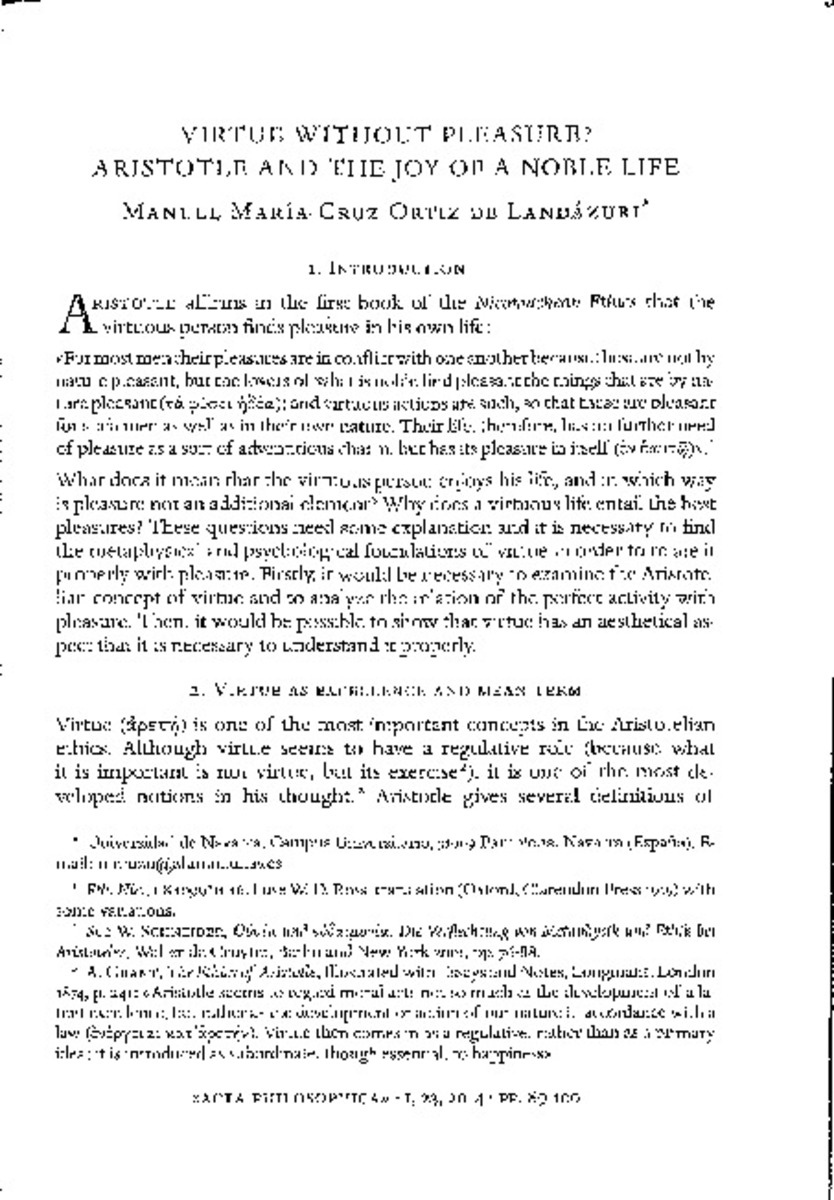Full metadata record
| DC Field | Value | Language |
|---|---|---|
| dc.creator | Cruz, M.M. (Manuel María) | - |
| dc.date.accessioned | 2016-10-06T11:34:22Z | - |
| dc.date.available | 2016-10-06T11:34:22Z | - |
| dc.date.issued | 2014 | - |
| dc.identifier.citation | Cruz, M.M., ""Virtue without pleasure?: Aristotle and the joy of a noble life"", Acta Philosophica, (2014), Vol.23, N.1, pags 89-100 | es_ES |
| dc.identifier.issn | 1121-2179 | - |
| dc.identifier.issn | 1825-6562 | - |
| dc.identifier.uri | https://hdl.handle.net/10171/41696 | - |
| dc.description.abstract | How it is possible for Aristotle to say that the virtuoiis man finds the greatest pleasures I In this article I try to show a reasonable link between virtue and pleasure, ground· ed on the notion of peifect activity, which in the case of human beings is an activity according to virtue. The virtuoiis person can contemplate his own noble life and find joy in his good actions, and pleasure appears in this contemplation, which is a perfect activity. | es_ES |
| dc.language.iso | eng | es_ES |
| dc.publisher | Editorial Staff | es_ES |
| dc.rights | info:eu-repo/semantics/openAccess | es_ES |
| dc.subject | Materias Investigacion::Arte y Humanidades::Filosofía | es_ES |
| dc.subject | Activity | es_ES |
| dc.subject | Aristotle | es_ES |
| dc.subject | Mean | es_ES |
| dc.subject | Pleasure | es_ES |
| dc.subject | Virtue | es_ES |
| dc.title | Virtue without pleasure?: Aristotle and the joy of a noble life | es_ES |
| dc.type | info:eu-repo/semantics/article | es_ES |
Files in This Item:
Statistics and impact
Items in Dadun are protected by copyright, with all rights reserved, unless otherwise indicated.






